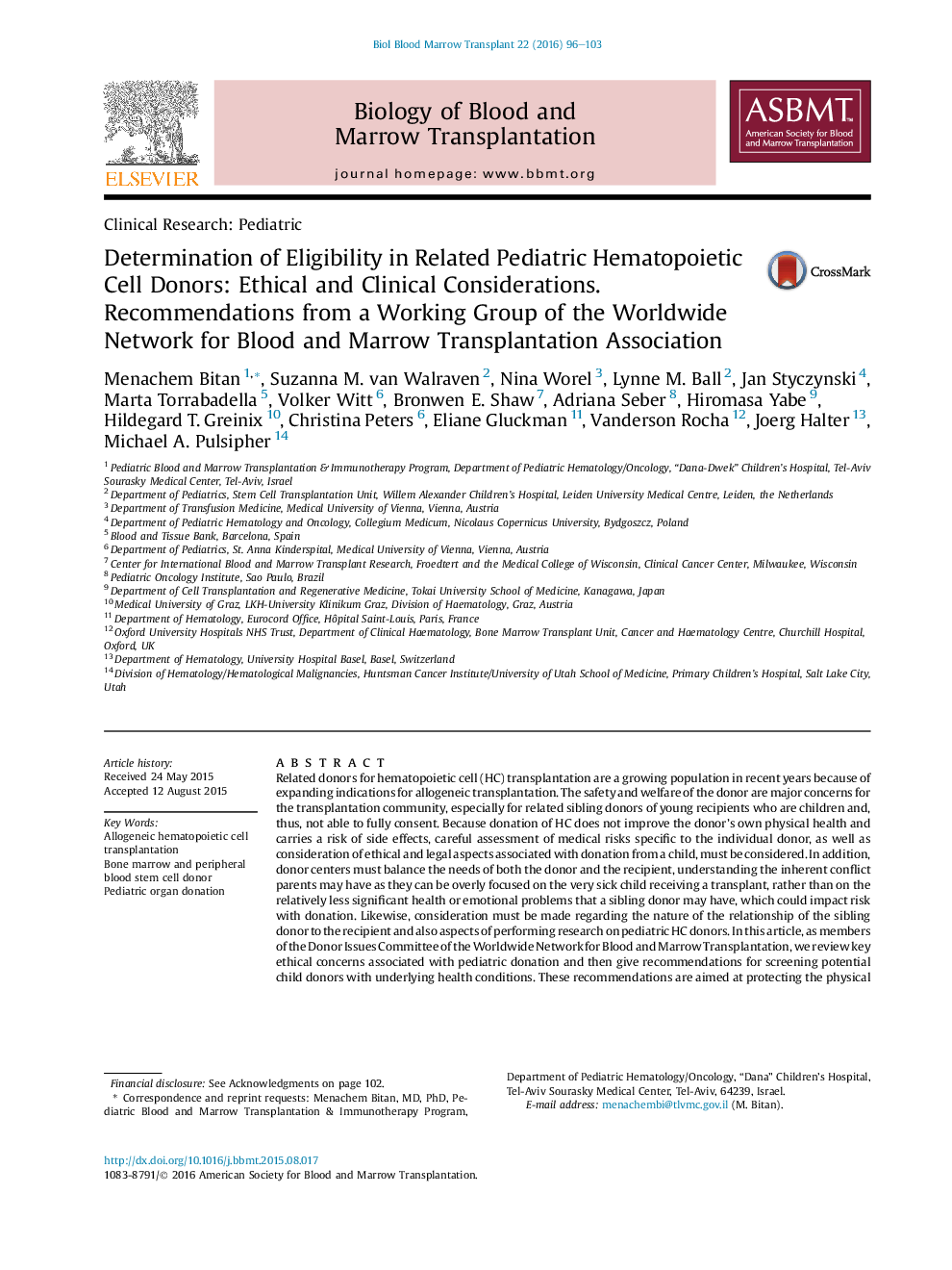| Article ID | Journal | Published Year | Pages | File Type |
|---|---|---|---|---|
| 2101411 | Biology of Blood and Marrow Transplantation | 2016 | 8 Pages |
•Advocacy and medical review of donors by individual(s) without dual responsibility to the recipient are recommended.•Regarding the relationship between a pediatric donor and a family recipient, we recommend focus on avoiding psychological harm rather than predicting whether donation will result in a psychological benefit to the donor.•Pediatric donors may be considered for research that carries minimal risk above the standard procedure or studies aimed at improving the safety and efficacy of the donation process.•We recommend deferral of donors with medical conditions that may increase the risk of complications associated with donation.•Centers should avoid performing human leukocyte antigen typing on potential donors with medical/psychological reasons not to donate.
Related donors for hematopoietic cell (HC) transplantation are a growing population in recent years because of expanding indications for allogeneic transplantation. The safety and welfare of the donor are major concerns for the transplantation community, especially for related sibling donors of young recipients who are children and, thus, not able to fully consent. Because donation of HC does not improve the donor's own physical health and carries a risk of side effects, careful assessment of medical risks specific to the individual donor, as well as consideration of ethical and legal aspects associated with donation from a child, must be considered. In addition, donor centers must balance the needs of both the donor and the recipient, understanding the inherent conflict parents may have as they can be overly focused on the very sick child receiving a transplant, rather than on the relatively less significant health or emotional problems that a sibling donor may have, which could impact risk with donation. Likewise, consideration must be made regarding the nature of the relationship of the sibling donor to the recipient and also aspects of performing research on pediatric HC donors. In this article, as members of the Donor Issues Committee of the Worldwide Network for Blood and Marrow Transplantation, we review key ethical concerns associated with pediatric donation and then give recommendations for screening potential child donors with underlying health conditions. These recommendations are aimed at protecting the physical and emotional well-being of childhood donors and arise out of the Third International Conference on Health and Safety of Donors sponsored by the Worldwide Network for Blood and Marrow Transplantation.
